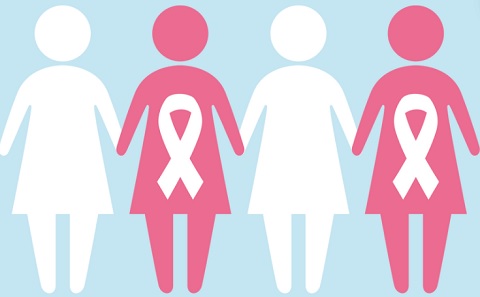Widening Participation Project
Diversity in Clinical Trials
Current opportunities
Widening participation in patient and public involvement (PPI) for trials being conducted at Southampton Clinical Trials Unit: A Community Study

Clinical trials of new medicines or health technologies rely on patients, carers or even healthy volunteers agreeing to take part in research and it is therefore vital that patients have a say in how this research is done. For this reason, patient and public involvement (PPI) is heavily embedded into research conducted at the Southampton Clinical Trials Unit.
But we know that certain groups and communities are under-served by clinical research. We therefore need to ensure that PPI in the design and conduct of our trials is reflective of the whole population, to encourage more people from diverse backgrounds to take part in research.
With funding from the Univeristy of Southampton's Publice Engagment in Research Unit (PERu), we carried out a community-based study involving focus groups and online interviews to help us better understand the barriers that may prevent or dissuade people from under-served groups from taking part in PPI for clinical trials and learn how we can overcome these.
.jpg)
Using information and comments from these sessions, we have co-produced a video and resources that can be used by researchers to reduce these barriers when conducting PPI as part of their future research projects, improving the diversity and inclusion of patient and public involvement and making healthcare research better for everyone.
Resources
Through the Widening Participation project, we identified eight key themes that are important for making PPI inclusive and accessible to diverse communities:
.jpg)
Many of these themes overlap and require similar steps from research teams to implement change. We have created prompt cards to help you incorporate these inclusive practices into your PPI.
Download the themes and prompt cards
Watch the video
This video was co-produced with the team at Drop The Mask Productions CIC, a Southampton-based media and IT company who promote inclusive employment opportunities and who helped facilitate one of our focus groups. The video contains direct quotes from people involved in the Widening Participation project and is voiced by some of those who took part.
Could you help us make research more diverse and inclusive?
.jpg?csf=1&web=1&e=wGIljx)
Study background
To make sure that the information we learn from clinical trials applies to everyone, we need to involve people from diverse backgrounds in our research. If we only include mainly white populations, it may mean that our findings won’t help the whole population, and this could increase existing health inequalities. For example, we know that prostate cancer is more common in Black men than in White men*. But if we only test a new treatment in clinical trials involving White men, how do we know that the treatment will work for everyone.
Despite work at the Southampton Clinical Trials Unit (SCTU) to engage and involve people from different ethnic groups, the people currently taking part in our studies do not always represent the race and ethnicity of the whole population or those affected by different diseases.
We’ve already looked into the challenges faced by ethnic minority communities in patient and public involvement (PPI) activities for clinical trials through our Widening Participation Project. This information helped us to understand the barriers some people face to participation and create materials to encourage more diverse people to join SCTU trial committees.
We’re now continuing this work and building on the relationships we’ve made with diverse communities here in the South. This project aims to improve the ethnic diversity of people taking part in clinical research by working with these communities to design patient-facing materials and an online forum.
What are we doing?
.jpg?csf=1&web=1&e=Zg6dQG)
We will hold a series of face-to-face workshops with people from diverse communities, in Southampton and the surrounding areas, to discuss existing trial materials and how these can be improved and made more engaging to people from ethnic minority backgrounds.
Together, we will create a template for new patient-facing trial materials and an online “safe space” to encourage a more diverse group of participants in our clinical trials.
Patient-facing materials:
In creative workshops, we will:
- Get feedback on our current patient-facing trial materials such as adverts, invite letters, participant information sheets, and trial videos.
- We’ll discuss how to improve language, content, and specific information that may be important for diverse ethnic groups.
- Together, we will then co-design a template for creating updated patient-facing materials.
Online “safe space”
Through the workshops, we also create an online “safe space” for new and current trial participants. This will be a website or forum where people can ask questions about trials anonymously, breaking down barriers between researchers and different ethnic groups.
Questions addressed during the workshops may include:
- How can we achieve a common goal/purpose?
- What is the best platform for this “safe space”?
- What are the ground rules or guidelines we should follow?
- How can the “safe space” encourage participation and inclusion while building and maintaining trust?
- How will feedback and support be provided?
- How will anonymity be respected?
- How many advocates for the “safe space” are needed for it to work as intended?
- The group will work together to co-design the concept and look of the “safe space”, including any materials or videos explaining how to use the platform.
Once we’ve agreed on the design of both the patient-facing materials and the “safe space”, we will test them in active SCTU clinical trials to get real-world feedback.
Would you like to be involved?
We need to work in partnership with people from diverse communities to make sure the materials we are creating through this project are inclusive, appropriate and engaging to people from ethnic minority backgrounds.
If you are from an ethnic minority background and would like to take part in this project, please read the Participant Information Sheet for more details.
If you would like to get involved in the workshops or can connect us with diverse people within your community, please contact the study team:
Email: rmgroup@soton.ac.uk
Phone: Call or text us: 07845 697452
Or fill in our registration form and someone from the team will get back to you as soon as possible.
Participants in the workshops will be reimbursed for their time and travel expenses.
How we will support you
Once you contact us, a member of the Southampton Clinical Trials Unit study team will get in touch to explain more about the study and make sure you understand what taking part involves. We can also answer any questions you have. You can decide not to take part at any time.
Before the workshops, we will send you a Participant Information Sheet which has more details about what the study involves and your role. We’ll also send you some of the example materials to look at before the workshops, so you have time to read them, make any notes and ask us questions.
At the start of the workshop, you will be asked for your consent to take part and for us to take notes of everything that is discussed. Taking part is completely your choice and you can decide to stop taking part at any time, even after you have started the workshop.
The workshops will be led by staff from the Southampton Clinical Trials Unit. We are here to support and listen to everyone. The discussions and activities will be structured, but the atmosphere will be relaxed and informal, so everyone can take part equally.
Outside the workshops, the study team will be available via email or phone if you have questions or need to chat.
Please be aware that the workshops will take place in community locations in Southampton and across Hampshire and Dorset more widely if there is demand.
To learn more about our clinical trials and Patient and Public Involvement at SCTU, visit the Southampton Clinical Trials Unit website.
* Information from Cancer Research UK
%20-%20smaller.jpg)
Our current involvement opportunities
Join a focus group to help improve cervical screening and the early diagnosis of cervical cancer

We are designing a study which will assess whether a specialised diagnostic tampon is as effective as current cervical screening methods for detecting the Human Papilloma Virus (HPV) and idenitifying women at risk of cervcal cancer. The aim is to make screening less invasive, more accessible, and reducing the stigma around HPV testing to improve screening uptake among women.
We would like to form a focus group of 4-6 public contributors to help provide a participant perspective on this study and guide trial design.
We are looking for:
· Participants of the HPV screening programme, especially those who may have experience of cultural considerations around taking part.
· People directly affected by cervical cancer, either as a current patient or a survivor, who can provide insight into the patient experience, challenges, and needs.
· Affected family members or caregivers who have supported loved ones through cervical cancer.
If you are interested in this role or have any questions, please read the full involvement advert and email Victoria Goss, Head of Early Diagnosis and Translational Research – V.M.Goss@soton.ac.uk, outlining your relevant lived-experience in this area.
The deadline to register your interest is Wednesday 8th May 2024.
Increasing Diversity in Clinical Trials
%20-%20smaller.jpg)
We're holding a series of workshops to speak to people from different ethnic minority backgrounds who can help us understand why people from certain communities do not want to take part in clinical trials.
Together, we will co-design new trial leaflets, adverts and an online 'safe-space' aimed at helping people from diverse backgrounds feel able to be part of research.
If you are from an ethnic minority background and would like to take part, can connect us to people within your community, or if you have any other questions, please get in touch:
Email: rmgroup@soton.ac.uk
Phone: call or text us on 07845 697452.
You can download more information on the project here, or register via the study webpage.